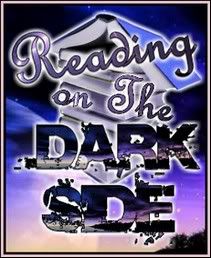 Walpurgis Night (Walpurgisnacht) is a traditional spring festival on 30 April or 1 May in large parts of Central and Northern Europe. It is often celebrated with dancing and with bonfires. It is exactly six months from All Hallows' Eve. The current festival is, in most countries that celebrate it, named after the English missionary Saint Walpurga (ca. 710–777/9). As Walpurga was canonized on 1 May (ca. 870), she became associated with May Day, especially in the Finnish and Swedish calendars. The eve of May Day, traditionally celebrated with dancing, came to be known as Walpurgisnacht ("Walpurga's night"). The name of the holiday is Walpurgisnacht in German and Dutch, Valborgsmässoafton in Swedish, Vappu in Finnish, Volbriöö, (Walpurgi öö) in Estonian, Valpurgijos naktis in Lithuanian, Valpurģu nakts or Valpurģi in Latvian, čarodějnice or Valpuržina noc in Czech, chódotypalenje Lowel Sorbian and chodojtypalenje in Upper Sorbian. The German term is recorded in 1668 by Johannes Praetorius (writer) as S. Walpurgis Nacht or S. Walpurgis Abend. An earlier mention of Walpurgis and S. Walpurgis Abend is in the 1603 edition of the Calendarium perpetuum of Johann Coler, who also refers to the following day, 1 May, as Jacobi Philippi, feast day of the apostles James the Less and Philip in the Catholic calendar. The 17th century German tradition of a meeting of sorcerers and witches on May Day is influenced by the descriptions of Witches' Sabbaths in 15th and 16th century literature.
Walpurgis Night (Walpurgisnacht) is a traditional spring festival on 30 April or 1 May in large parts of Central and Northern Europe. It is often celebrated with dancing and with bonfires. It is exactly six months from All Hallows' Eve. The current festival is, in most countries that celebrate it, named after the English missionary Saint Walpurga (ca. 710–777/9). As Walpurga was canonized on 1 May (ca. 870), she became associated with May Day, especially in the Finnish and Swedish calendars. The eve of May Day, traditionally celebrated with dancing, came to be known as Walpurgisnacht ("Walpurga's night"). The name of the holiday is Walpurgisnacht in German and Dutch, Valborgsmässoafton in Swedish, Vappu in Finnish, Volbriöö, (Walpurgi öö) in Estonian, Valpurgijos naktis in Lithuanian, Valpurģu nakts or Valpurģi in Latvian, čarodějnice or Valpuržina noc in Czech, chódotypalenje Lowel Sorbian and chodojtypalenje in Upper Sorbian. The German term is recorded in 1668 by Johannes Praetorius (writer) as S. Walpurgis Nacht or S. Walpurgis Abend. An earlier mention of Walpurgis and S. Walpurgis Abend is in the 1603 edition of the Calendarium perpetuum of Johann Coler, who also refers to the following day, 1 May, as Jacobi Philippi, feast day of the apostles James the Less and Philip in the Catholic calendar. The 17th century German tradition of a meeting of sorcerers and witches on May Day is influenced by the descriptions of Witches' Sabbaths in 15th and 16th century literature.The nine nights of April 22 (interestingly enough, the modern festival of Earth Day) to April 30 are venerated as remembrance of the All Father’s self-sacrifice upon the World Tree Yggdrasil. It was on the ninth night (April 30, Walpurgisnacht) that he beheld the Runes, grasped them, and ritually died for an instant. At that moment, all the Light in the 9 worlds is extinguished, and utter Chaos reigns. At the final stroke of midnight, the Light returns in dazzling brilliance, and the bale-fires are lit. On Walpurgisnacht, the dead have full sway upon the earth; it is the ending night of the Wild Hunt. May 1 is the festival of Thrimilci; the beginning of Summer. Thrimilci is a festival of joy and fertility, much like Ostara; however, most of the Northern World is finally escaping from the snow at this time. (I will post for Thrimilci/May Day in it’s own post just before the festival night. The important thing to note is that in this time of spring and renewal, we should be celebrating the beauty of spirit and nature.)




No comments:
Post a Comment